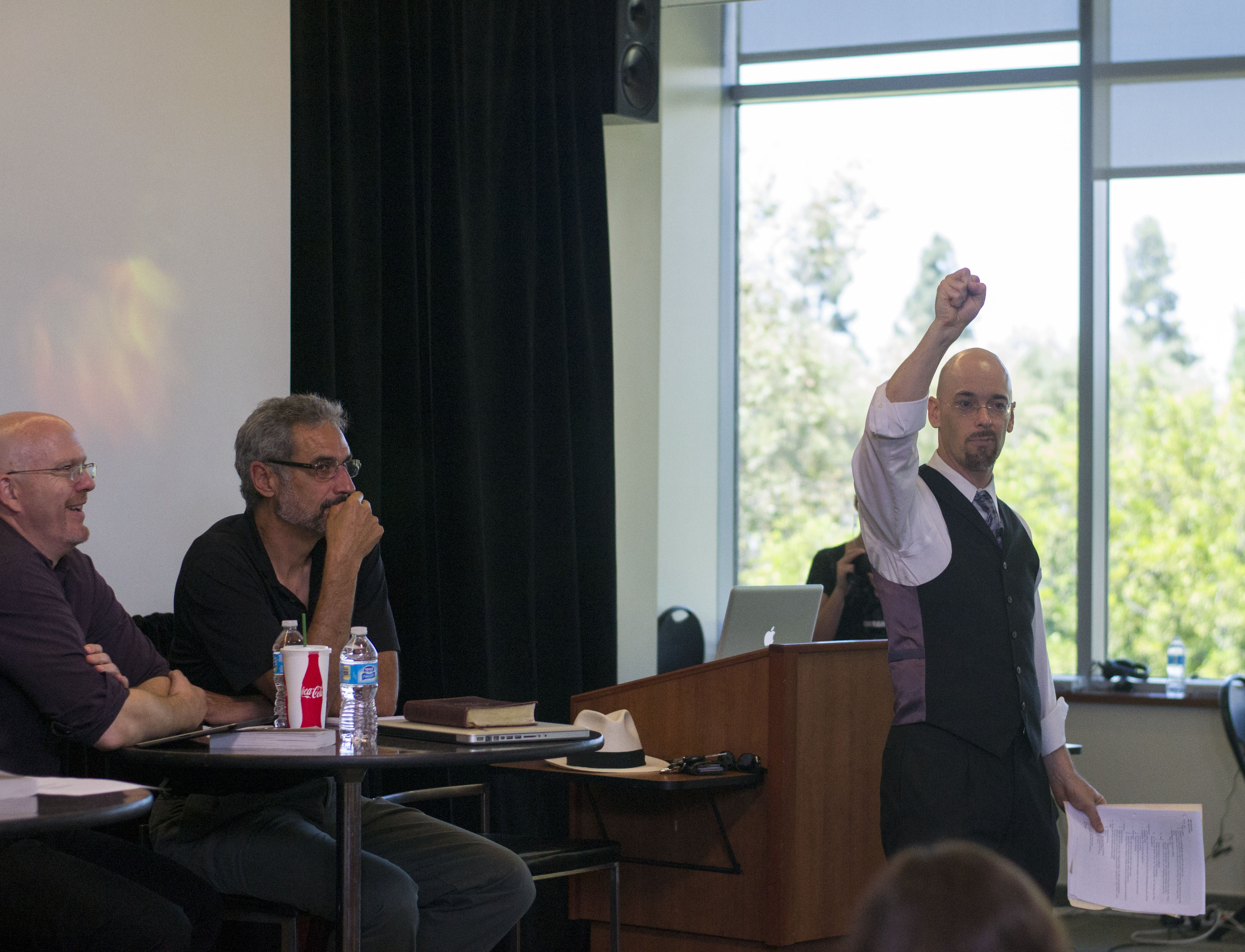
The Integrated Reflections on Interdisciplinary Studies, or IRIS program, launched its first six-hour class session last Friday afternoon, making this the first IRIS course offered outside of interterm. Brainchild of Biola’s own Aaron Kleist, associate provost for academic innovation, the IRIS program looks to integrate courses offered at Biola by allowing professors from various disciplines to teach alongside one another in hopes of better achieving what Kleist referred to as “whole-person education.”
A UNIQUE APPROACH TO EDUCATION
“This is an integrated, interdisciplinary approach to liberal arts,” Kleist explained in the first class session to a room of 48 students.
Kleist went on to introduce the scriptural basis behind the academic endeavor.
“The goal of IRIS is taken from Matthew 6:22, in which Christ says, ‘If the eyes are good, your whole body will be full of light.’ That’s what we desire. Our goal for this experience is not just … for credits … but ultimately it’s to see Christ and his creation more clearly and be transformed more into his likeness as a result. That is why we are here,” he said.
The IRIS program desires not just to better educate, but to better equip students as disciples of Jesus, Kleist explained. He also added that integration is something Biola takes seriously and does purposefully.
“The way many of us experience education is … somehow at the end of four or more years it’s all supposed to congeal in you, right? You come out as well-rounded people. Life’s not like that, though. Every day it throws at us challenges that demand we draw on skills and knowledge from different disciplines simultaneously,” Kleist told the class.
STUDENTS ENJOY INTEGRATED LEARNING
Junior biblical studies major Maddie Gettings, who is new to the IRIS program, expressed her desire to take the course not only for the general education units, but for the value of a multidisciplinary approach.
“I love the whole integration of learning,” she said. “I’ve always hated philosophy, so when I figured out that they’re mixing philosophy with literature, which I love, I thought that would be such a cool mix of subjects and it would help me to learn to love philosophy and to apply it better.”
Brenna Jones, coordinator for online teaching and head of assessment for the IRIS program, explained that this year-long commitment is designed for students to spend their first semester enrolled simultaneously in Film and Literature and Introduction to Philosophy. Next semester they will be concurrently enrolled in Theology 1 and Nature of Math.
“The general idea is that we are all studying the same course material together … and looking at them through multiple facets because that’s the way we operate in real life, so why wouldn’t we do that with education?” she said.
Both semesters are being co-led by Kleist, Spears, Langer, Thoennes and Weathers, all of whom — along with other Biola faculty — were instrumental in creating and developing the IRIS program. Professor of English Natasha Duquette and philosophy professor Kristen Irwin, among others, will be making guest appearances at the Friday sessions as the semester progresses.
AN EXCITING FUTURE
Kleist told the class that he views this as merely the beginning, an exciting chapter in the future of education.
“This is about trying something that no one has ever done before. In January we have a class we’re calling IRIS inquiry … this is IRIS immersion. This is ultimately a two-year program of core curriculum classes where as a community we move through this experience,” he told the students.
Jones added that IRIS hopes to expand to online courses that will be available for those who do not attend Biola.







